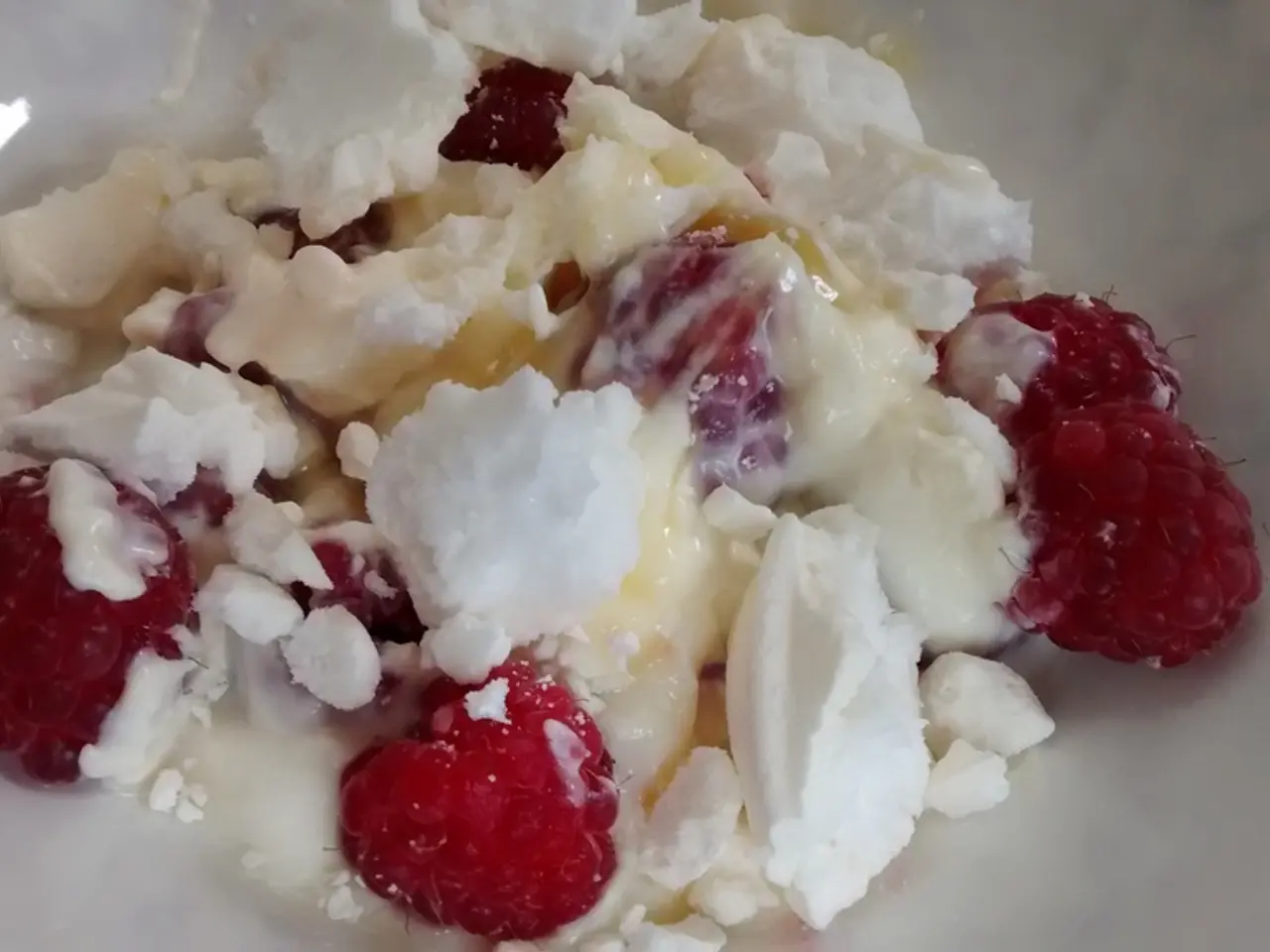Foods for Reducing Abdominal Fat: Dietary Choices and Foods to Shun
Losing Belly Fat: A Guide to Food Choices
Belly fat, often referred to as visceral fat, is a health concern linked to various conditions such as heart disease, type 2 diabetes, and certain cancers. To combat this, a balanced diet focusing on lean proteins, high-fiber foods, healthy fats, and certain metabolism-boosting compounds can help reduce belly fat and promote overall health.
Foods to Include
- Lean Proteins: Chicken breast, turkey breast, white fish, tuna, eggs and egg whites, Greek yogurt, cottage cheese, tofu, lentils, and prawns are excellent sources of protein that help preserve muscle during weight loss and promote fat loss.
- High-Fiber Foods: Oats, whole grains like quinoa and brown rice, black beans, chickpeas, broccoli, berries (blueberries, strawberries, raspberries), pears, chia seeds, flaxseeds, artichokes, and split peas are fiber-rich foods that promote satiety and slow digestion, helping reduce calorie intake.
- Healthy Fats: Fatty fish rich in omega-3s (salmon, mackerel), nuts (almonds), avocados, and olive oil are excellent sources of healthy fats that help reduce visceral fat and inflammation.
- Metabolism Boosters: Chili peppers contain capsaicin that may slightly increase fat burning. Moderate amounts of apple cider vinegar have been shown to help reduce abdominal fat.
- Other Useful Additions: Whole grains like oats, quinoa, and brown rice are fiber-rich, keeping your digestive system in check and curbing hunger. Greek yogurt, high in protein and probiotics, promotes gut health, reduces bloating, and keeps you full.
Foods to Avoid
- Sugary Beverages: Soda, sweetened teas, and fruit juices with added sugar contribute to fat accumulation, especially in the abdominal area.
- Processed Snacks and Baked Goods: Chips, crackers, pastries that often contain trans fats and empty calories lead to fat gain.
- Refined Grains: White bread, pasta, and other refined carbohydrates cause rapid blood sugar spikes and fat storage.
- Trans Fats and Fried Foods: Promote visceral fat storage and inflammation.
- Alcohol: Especially beer and cocktails, which increase visceral fat.
In addition to diet, lifestyle factors such as quality sleep, stress management, and regular exercise significantly affect belly fat reduction effectiveness.
In summary, emphasize lean proteins, fiber-rich whole foods, and healthy fats while strictly minimizing sugar, refined carbs, trans fats, and alcohol for the best results in reducing belly fat. Foods like nuts, eggs, and green tea can also be beneficial additions to your diet. On the other hand, processed meats, sugary beverages, and excessive alcohol should be avoided to achieve your belly fat reduction goals.
- Adopting a balanced diet focusing on lean proteins, high-fiber foods, healthy fats, and metabolism-boosting compounds can assist in both weight loss and maintaining muscle mass.
- Oats, whole grains, and vegetables like broccoli, berries, pears, chia seeds, flaxseeds, artichokes, and split peas are fiber-rich foods that can promote satiety, slow digestion, and reduce calorie intake.
- Foods rich in healthy fats, such as fatty fish, nuts, avocados, and olive oil, can help reduce visceral fat and inflammation.
- Chili peppers and moderate amounts of apple cider vinegar may aid in fat burning and reducing abdominal fat.
- Sugary beverages, processed snacks, refined grains, trans fats, fried foods, and alcohol should be avoided for optimal belly fat reduction.
- Regular exercise, stress management, and quality sleep are essential lifestyle factors that contribute to the effectiveness of belly fat reduction.
- Achievement of belly fat reduction goals can be aided by incorporating foods like nuts, eggs, and green tea into your diet.
- Consuming processed meats, sugary beverages, and excessive alcohol may hinder your progress towards your belly fat reduction goals.




